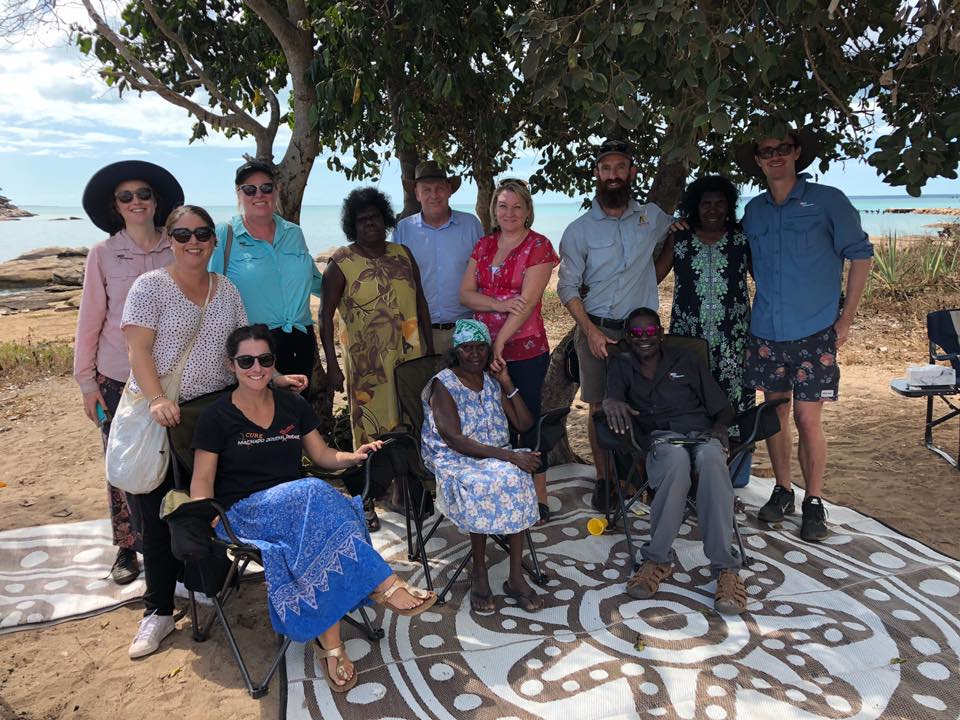12 months ago Youngcare representatives, as guests of the Machado-Joseph Foundation, were welcomed to Groote Eylandt, a remote Aboriginal community off the north-east cost of the Northern Territory. The purpose of the trip was to meet with locals, who have the rare-degenerative disorder of Machado-Joseph Disease (MJD), and are often forced to leave their community when their care needs become too high to be managed by their family members.
This educational, eye-opening experience demonstrated the importance of the Aboriginal community, country and culture, and taught us ways that we can better support them to stay in their homes. The research that was undertaken was collected and submitted for the purpose of the Royal Commission into the Quality and Safety of Aged Care.
—
MJD is a hereditary neuro-degenerative condition which sits within the ‘family’ of neurodegenerative diseases that includes Huntington’s Disease. Each child of a person who carries the defective gene has a 50% chance of developing the disease and the mutation is typically expanded when it is passed to the next generation (known as an ‘anticipation effect) this means that symptoms of the disease appear around 8-10 years earlier and are more severe.
Despite having an aged care centre on the island, lack of skilled staff, appropriate funding and lack of trust in the community mean that it can only operate as a day centre, providing breakfast, socialization and occasional respite.
When an individual’s care needs become too hard for family members to manage, they are forced to fly to Darwin and leave their community behind. In communities where MJD is prevalent and runs through bloodlines, sometimes whole families can be effected and separated.
“My people, never wanted to go to Darwin to die. The reason why they wanted to stay and die is because family do not want to go to Darwin when it is too expensive to travel to see them.” – Gayangwa Lalara, elder.
Gayangwa’s father developed MJD when he was an older man, and all 6 of her brothers and sisters were affected by their 40s. Gayangwa does not have MJD, and uses her time to care for her family and advocate for their needs as the Director / Vice Chairperson of the MJD Foundation.
She was also the primary carer for two of her sisters’ children for over 15 years. Now the third generation of her family is sick – her 21-year-old niece passed away in 2014, and she has nieces, nephews and grandchildren with the disease.
“For us as a family, she was in my care for a long time and then she was missing from us. It wasn’t better for her to go away because there was a building here – but it wasn’t 24/7 for her to stay there. It makes me sad that we can’t use it.”
“It is better for them to stay and they have more support here in the community instead of going away from home. There they will be sitting or lying down looking at the walls but here there are families that can come and visit them and talk to them.”














